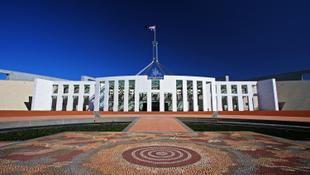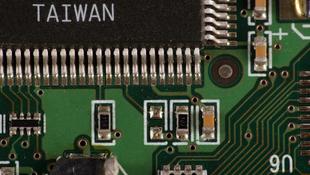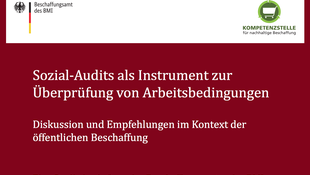
Electronics Watch supports Australian Government to Address Modern Slavery Risk
The Australian Government has engaged with Electronics Watch through the Australia Border Force to map its ICT supply chains and assess the risk.
If you are a journalist, we look forward to hearing from you. We can keep you updated about labour rights in the global electronics industry.
Press contact: Harriet Edwards hedwards@electronicswatch.org
You can subscribe to our newsletter here.

The Australian Government has engaged with Electronics Watch through the Australia Border Force to map its ICT supply chains and assess the risk.

Electronics Watch has embarked on a new chapter of its monitoring program in Taiwan. The pandemic in 2020 drew attention to the precarity of the supply chains and the importance of Taiwan for its key role in chip production. Taiwan produces cutting edge chips for the leading electronics companies and is crucial to the global semiconductor supply chain. Electronics Watch is now embarking on a pilot project with Serve the People Association (SPA), Taoyuan, to look at the risk of forced labour in workers manufacturing chips in Taiwan and to build a long-term sustainable partnership that respects and supports workers' rights.

This year, our virtual summit will focus on two of the most important yet least talked about workers' rights: the freedom of association and the right to collective bargaining. The summit will take place between November 30—December 3 and be the culmination of a series of activities on this topic that we are organising in 2021.

The Procurement Office of the German Federal Ministry of the Interior has presented the Electronics Watch impact model as best practice.

The pandemic year of 2020 has brought monumental hardship to workers everywhere. Lockdowns, homeworking and social distancing have made screens our main means of communication. Those producing these screens and related hardware have all too often laboured unprotected, and been denied a voice about their own health and safety. Their realities have been defined by insecurity and exclusion. For this reason, 2020 has also been a year Electronics Watch took on great challenges.

Electronics Watch has released a statement condemning the recent killing of Dandy Miguel, a young trade union leader in the Philippines. He was shot dead on 28 March while riding his motorcycle home from work. Attacks against unionists, activists and critics have escalated during the Duterte regime and the pandemic. Last year the Philippines was ranked among the ten worst countries for violations of workers' rights.

The City of Ghent in Belgium, with their ICT partner District09, and Ghent University, are the latest public sector bodies to join the rapidly expanding Electronics Watch network. These organisations have worked on sustainable procurement for some time. Now they intend to delve deeper into ICT.

Curtin University and Electronics Watch celebrate the first affiliation in Australia. Electronics are recognized as being in the top five imported products in Australia at risk of modern slavery with a combined import value of nearly $10 billion.

Electronics Watch and The Responsible Business Alliance (RBA) have entered into a formal agreement whereby the two organizations will work together to address issues in the global supply chains of RBA members where products are manufactured for public procurement.

Dataport, the IT service provider for municipal government organizations in six German states: Bremen, Hamburg, Mecklenburg-Western Pomerania, Lower Saxony, Saxony-Anhalt and Schleswig-Holstein, has affiliated to Electronics Watch for an initial period of six years.